Hi everyone. After 20 years of (mostly container) gardening - and a smidgen of experience with planting a few things directly into the ground - I've begun offering urban garden design in my NYC (Zone 7) neighborhood.
I was recently contacted by someone who has a small cement/stone patio, but where the borders contain actual soil, complete with well-established shrubs. While I do have some experience with my own small potted shrubs and Japanese maples, I've no experience with larger shrubs, hedges, etc.
This person is simply looking for me to clean-up what's already there...make it look nicer...while understanding that I'm not a professional landscaper or lawn-care professional.
I have a few questions / thoughts to express out loud, and would appreciate any/all inputs. THANKS SO MUCH, IN ADVANCE!
1) Rose bush
My sense is that while established rose bushes are pretty self-sufficient, that periodic pruning (and done Properly) along with perhaps specific soil pH/fertilizer, is the norm. I suspect that the rose shrub (see photos that follow...for some reason I'm never able to attach photos to my original posts here...only to subsequent comments/posts...) ...I suspect the rose shrub hasn't been pruned in a long time...it appears 'leggy' and will look nicer once pruned to create bushier growth. But is now a good time to prune, or should that perhaps have been done either in the early Fall or else in the early Spring, after danger of frost passed? CAN I still prune it now, or should we just wait until the early Fall?
I saw that the two primary canes look different. Is that perhaps just due to one cane being older than the other, or do you think one cane is more or less 'healthy' than the other?
Do you think basic loppers (say, what I'd normally use for my own blueberry shrubs) would suffice for pruning rose bushes, or might they need a larger/stronger lopper?
Similar to certain other flowering plants, do you typically 'deadhead' roses in order to promote additional new flowers? I'm guessing that's Not the case with roses (...that it's simply when you prune the overall plant, each year, that it can (later) promote new growth/canes/flowers, over time)....that, it's up to each gardener, whether to cut off any dead roses for a 'cleaner' look, and before it's time for the harder, annual pruning of the overall shrub?
2) Large azalea(?) or rhododendron(?) shrubs.... not sure which it is....
Similar to the rose bush, my sense is that this type shrub is pretty self-sufficient. Overall they look healthy...they just may need some shaping.
I'm assuming you don't 'deadhead' this plant in order to promote additional flushes of flowers, but that you can certainly snip off dead flowers so that the overall plant looks 'cleaner' going into the Fall. I'm also guessing that, unlike for rose (or hydrangea, etc.) that azalea/rhododendron do not need 'hard pruning' each year. You just trim/shape the overall plant as you wish...depending on how you think it looks?
3) Fertilizing
Should I add any specialized fertilizer (if it exists?) at this time of year, and which may be particular to rose and/or azalea/rhododendron plants, or is it too late for this growing season? And, are there DIY fertilizers appropriate for these shrubs? In other words, I'd rather not buy specialized bags of fertilizer for this plant or that plant, and if I may already have things on-hand that could work, i.e., fish fertilizer, ammonium sulfate, bloodmeal, lime, compost, epsom salt, etc.)
4) Pest control
Does anyone know if any of these particular plants are prone to pests, and, if so, if there are any natural/non-chemical ways to address the particular pests?
5) Weed control and mulch
My sense is that weed control and the laying of mulch can sometimes go hand-in-hand....that by putting down mulch, it prevents any weeds on the ground from getting sun/air, thereby 'suffocating' them. That said, I suppose some weeds can still manage to survive/thrive, even under a layer of mulch.
I already saw evidence of an invasive vine that was in the ground, and beginning to wind its way up the rose bush. I know that such vines have extensive networks under the topsoil, and that they can weave their way in from adjoining properties, etc. So I suspect we'll need an ongoing program of first pulling up any/all weeds that I can (trying to get up as much of the roots as possible) and then perhaps applying some type of weed killer? Is there anything natural? Otherwise what would you recommend?
Once we've addressed as much of the weeds as we can, I then plan to lay down mulch all around the shrubs. I know there are a number of organic type mulch, and that there is also some type of recycled rubber type mulch. I understand the rubber mulch can look quite natural/attractive and is clearly long-lasting, but of course the downside is that it will never break down or provide organic nutrients to the soil. Any thoughts on the pros/cons? I'm also guessing that recycled rubber mulch might be very pricey?
I know that most/all(?) plants do not like having mulch in direct contact with the crown of the plant...that you need to allow, er.... a good 6", at a minimum(?) of space...or, in other words, that you should not apply the mulch any closer than 6" to the crown of the plant. I'd then plan to insert some type of a 'collar' or whatever it's called....a black, brown or dark green thing that would get pushed down into the soil, around the crown of the plant, to ensure that no mulch begins to creep towards the crown.
So now, back to the weeds. While on one hand the laying of mulch might help to keep some weeds at bay, what about the really tough invasive vines that often spread underground? If one or more of them manage to pop out through the mulch, won't the mulch then make it harder for me to then try and 'pull' that entire vine up from the ground...while trying to trace it back to its root? Or could I simply pull up what I could, and then hope that the mulch at the very least 'slows down' further growth/spreading of that vine/weed?
Could I still theoretically apply some type of weed killer on top of the mulch, which would then seep down to the topsoil, thereby keeping that invasive vine/weed at bay?
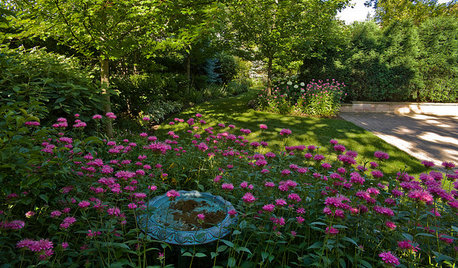
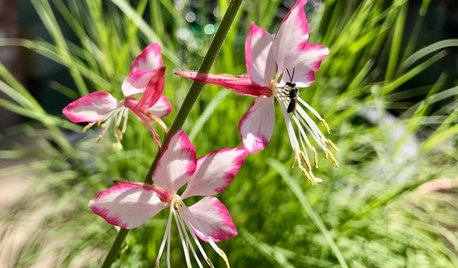

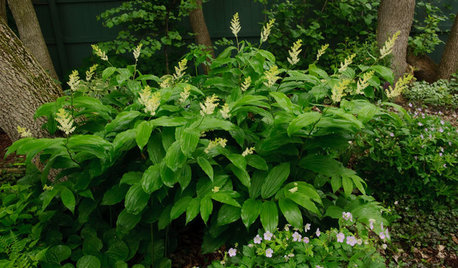
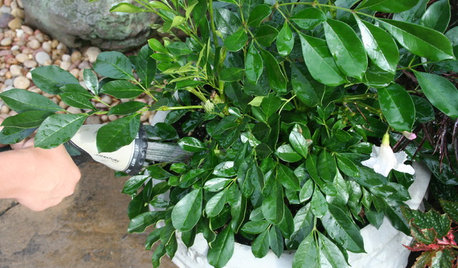
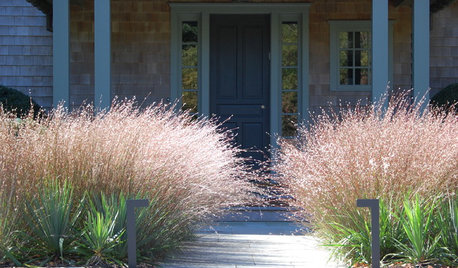
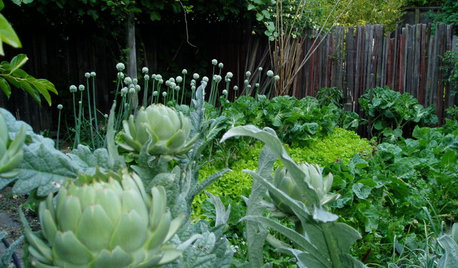
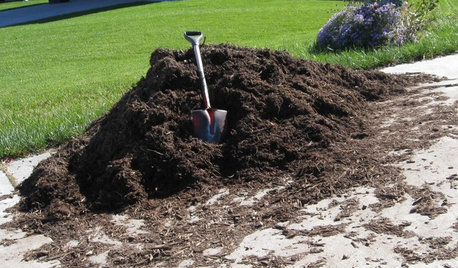
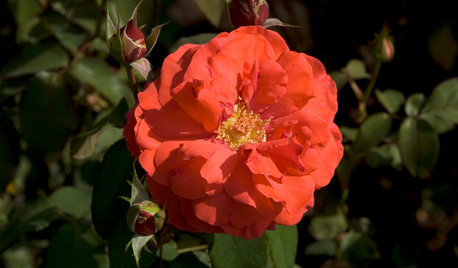
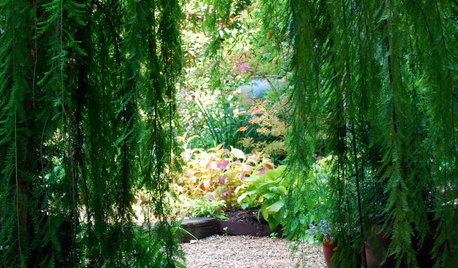



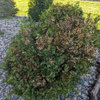
rosaprimula
gardengal48 (PNW Z8/9)
Related Discussions
Banana plant care questions
Q
Streptocarpus care question for a newbie
Q
Prairie plants in suburban flower beds
Q
Suburban native options
Q
Mister Moses, Pittsburgh, W. PA., zone 5
Mischievous Magpie (CO 5b)
Lynn NevinsOriginal Author
Mischievous Magpie (CO 5b)
Lynn NevinsOriginal Author
gardengal48 (PNW Z8/9)
Lynn NevinsOriginal Author
Heather RR (PNW 8b)
dianela7analabama
Vaporvac Z6-OhioRiverValley
Lynn NevinsOriginal Author
rosaprimula
Lynn NevinsOriginal Author
dianela7analabama
gardengal48 (PNW Z8/9)